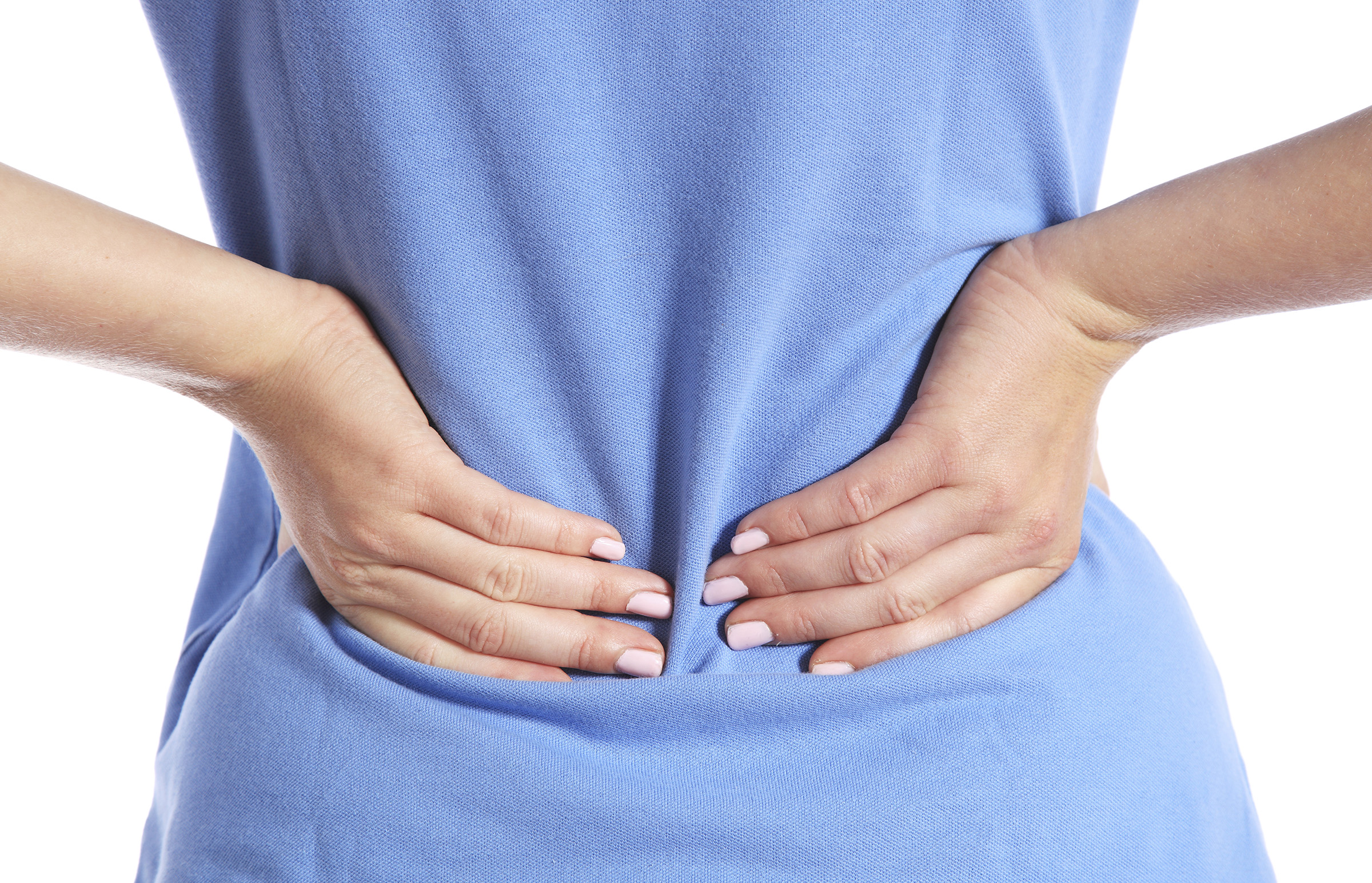
Keeping Back Pain at Bay
Nurses are at a greater risk of back pain than many other occupations. According to a study by the University of Alberta’s faculty of rehabilitation medicine, 65% of orthopedic nurses and 58% of ICU nurses develop debilitating lower back pain at some point in their careers. Due to the nature of the job, it isn’t hard to see why. Nurses often work with poor posture (repetitively leaning and bending over bedridden patients, lifting and transferring heavy and slumped patients), so it’s no surprise that they have the greatest incidence of back pain.

Todd Sinett, a chiropractor and author of The Truth about Back Pain, says back pain sends more patients to the doctor than every other condition except the common cold and is the leading cause of job disability in people under 45.
“Nurses often suffer from back pain more than other professions because they are susceptible to many triggers that can cause back pain,” he says. “Standing for long hours, reaching over patients, and doing heavy lifting are all contributing factors to structural causes of back pain.”
He adds that back pain affects all ages and demographic groups, so all nurses, not just minority nurses, are equally at risk of getting lower back pain.
Work-Related Factors
Michael Ho, a chiropractor and acupuncturist, adds that nurses’ high stress levels often causes chronic muscle fatigue and strain, which can lead to the eventual hardening of muscles, loss of range of motion, and early degeneration of the lower back structure.
“The subluxation of spinal joints over time causes premature degeneration of the facet joints and spinal disc,” he says. “Over time, degeneration of the disc causes herniation and irritation of spinal nerves. This, with the combination of tight muscles, joint restrictions, disc herniation, and nerve impingement can cause local back pain as well as radiating hip and leg pain.”
Poor dietary practices are the most overlooked causes of back pain, Sinett adds. Nurses tend to have long shifts that can make eating right difficult. Diets filled with caffeine and sugar elevate the body’s cortisol levels. Elevated cortisol levels often raise the inflammatory factors in the body, which can result in back pain.
“We are what we eat, so make sure that you are eating good, healthy, wholesome foods,” he says. “Plan ahead and make healthier eating choices [and] your back will thank you.”
Avoid Back Pain During Long Shifts
Even though back pain is quite common, it doesn’t make it normal. Sadly, some nurses have resigned themselves to living with some level of discomfort. But they don’t have to.
David Simpson, a chiropractor and owner of Gotham Healing Arts, believes a few simple changes such as proper posture and body usage may prevent nurses from sustaining injuries. He recommends the following tips for nurses:
Don’t slouch. The lower back or lumbar spine joints are like moist sponges, he says. Healthy joints contain a lot of fluid, and sitting for an hour squeezes most of the water out of this spongy tissue; quicker if you slouch. Without the water, your joints become brittle and susceptible to wear and tear.
Lift with your legs. “In spite of this advice, most lift improperly,” says Simpson. “Most people bend their knees first, but only for about 30 degrees, then they involve their back, and they start to bend at the waist, especially if the object is not directly under them.” Ideally, the back should never round like that of a low-humped camel. This body position puts pressure on the spinal joints, which leads to damage over time and will eventually turn into pain at some point in your life, he adds.
Erect, good posture. At best it is a bad habit, but there are practical biomechanical reasons for standing up straight, Simpson says. Proper standing helps you keep your normal spinal curves, reduces the compressive forces on those joints, and reduces the likelihood of painful episodes of back pain.
Sinett says stretching is one of the best back-pain-relieving exercises and suggests nurses stretch at least for 3 sets at 12 petitions each day. “Stand up straight, raise both arms above your head, and gently lean back approximately 35 degrees,” he says. “Extending the spine will counteract the forward hunch that nurses do by sitting in front of the computer and being hunched over patients.”
Overall, Ho stresses the importance of nurses taking care of themselves first. He recommends all nurses exercise, rest, and eat properly every day, and more importantly, get the treatment they need to relieve any minor problems in their back before it gets more severe and becomes more chronic in nature.
“It’s important to remember that it’s better to get rid of a mild back problem before it becomes a serious degenerative problem that can lead to disability,” he says.
Terah Shelton Harris is a freelance writer based in Alabama.


